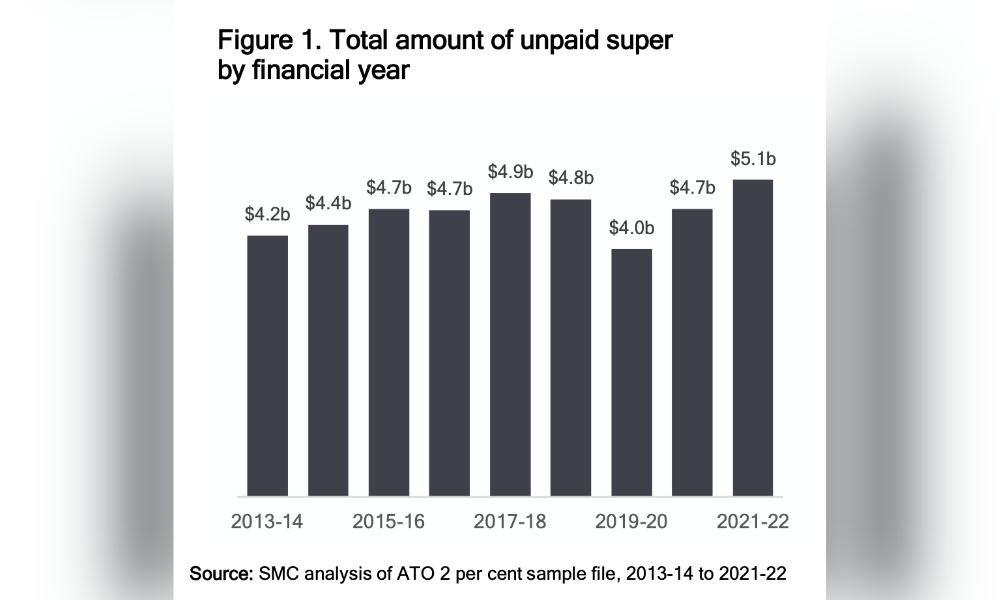
New report shows workers losing $1,800 in super annually

Millions of Australians are missing out on their full superannuation entitlements, with a staggering $5.1 billion in unpaid super reported in just one year, according to new analysis by the Super Members Council (SMC).
The SMC revealed that 2.8 million workers were deprived of their legal superannuation entitlements in the 2021-22 financial year alone.
The report also highlighted that over the past nine years, Australians have collectively missed out on $41.6 billion in unpaid super, with the average affected worker losing $1,800 annually.
This shortfall could result in a loss of over $30,000 in retirement savings for a typical worker, with the problem appearing to worsen as more Australians lose larger sums each year.

Source: SMC
Certain groups, including women, people in insecure work, migrant workers, and younger workers, are particularly vulnerable to unpaid super, according to the SMC.
The analysis of Australian Tax Office (ATO) data shows that workers in their 20s earning less than $25,000 a year also have a 50% chance of being underpaid in their superannuation.
"Unpaid super locks too many Australians out of the full transformative benefits of the retirement system and leaves people poorer when they retire," said SMC CEO Misha Schubert in a statement. "A unified push is needed to stamp it out."
A major factor contributing to the situation is the outdated system that allows super payments to be made quarterly, rather than aligning them with wage payments.
According to the SMC, this misalignment makes it difficult for workers to track their super contributions and hampers the ATO's ability to monitor underpayments in real-time.
The Australian Government has committed to enacting payday super reforms by 2026, but legislation has yet to be introduced to Parliament, and the details of the implementation remain unclear.
However, Schubert further urged the government to introduce stronger laws to ensure that millions of Australians receive their full super entitlements.
"Paying super on payday will modernise the super system and should hugely reduce underpayments. It's an excellent example of reform to benefit super fund members, which will make super fairer for workers and employers alike," Schubert said.
In addition to payday super reforms, the SMC is calling on the government to set unpaid super recovery targets for the ATO and to provide better support for workers to claim their superannuation in cases of insolvency.
"Legislation to pay super on payday, combined with a stronger ATO enforcement regime and better support for workers to claim their super after insolvencies, is crucial to ensure millions of Australians who are currently being short-changed are paid their super on time and in full," Schubert stated.